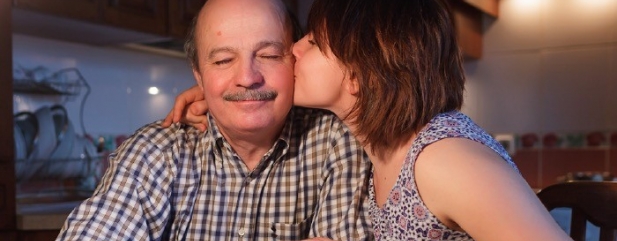Archived article
Please note that tax, investment, pension and ISA rules can change and the information and any views contained in this article may now be inaccurate.
Bank of Mum and Dad on the rise: how to navigate gifting

Parents are increasingly helping their children get on to the property ladder – so much so that if they were counted alongside mortgage lenders they’d be a top 10 lender.
Research from finance firm L&G found that parents have gifted £6.3bn to their children to help them buy their first home. The average amount has seen a steep rise, as property prices have risen, with the average parent now giving £24,100.
This parental gifting is seen as essential by many in order to get on the property ladder, with the average first-time buyer deposit now sitting at an eye-watering £49,480, according to estate agent Savills.
This figure is heavily skewed by London, where the average first-time buyer deposit is just over £143,000. However, the figure is still almost £72,000 in the south-east and just shy of £39,000 in the West Midlands.
But what should parents watch out for if they are gifting money? Here we answer the most popular questions:
1. What’s the difference between gifting and loaning the money?
Some parents might be able to spare the cash temporarily but ultimately want it back, so they could loan the money rather than gift it. This could be a win-win: you charge a low or no interest rate, your child gets on to the property ladder sooner, but you still get the money back.
Bear in mind mortgage companies will take into consideration any loan, even if it is from a parent, when assessing affordability.
This means if you decide you want to loan the money to your offspring, even interest-free, the mortgage company will need to know this and will count any monthly repayments as a regular outgoing when working out what the buyer can afford.
This doesn’t mean you shouldn’t loan the money, but check with a mortgage broker to see what your child can now afford.
While you will, presumably, trust your child it is important to draw up a formal agreement on how the loan will work, over what period it will be repaid or what happens if the property is sold.
Research from the London School of Economics found just 14% of parents loaning money took legal advice before setting up the loan – but getting help could pay off in the long-run.
2. Do most people gift a lump sum?
The type of financial support offered by parents varies widely. For some it’s gifting money, for others it’s helping with the monthly mortgage payments, while many parents will act as a guarantor on the mortgage.
Most think that helping with deposit money is most useful, as often mortgage costs are the same or cheaper than rent, but getting a deposit together is the biggest hurdle to getting on the property ladder. However, it’s worth having a frank discussion with your children about where the money can best be used. It might be that paying the stamp duty and legal fees will help, or that by helping with mortgage payments the term of the loan could be reduced.
3. What happens if my child is buying with a partner?
This is a particularly thorny issue for parents to navigate. They might be perfectly happy giving money to their child but might not want their child’s partner to get their hands on the cash.
If a parent gifts the money for a deposit and their child and partner buy the property 50:50, should the relationship break up they may find the partner walking away with their money.
It’s here that legal advice will really pay off. Drawing up a declaration of trust will help and should make clear exactly about who owns what.
You’ll also want to consider whether your child is buying with their partner as tenants in common or on a joint tenancy basis. As tenants in common should one person die their share of the house will pass to their beneficiaries. It also allows for different shares of the property to be owned by each person. Joint tenants own an equal share and if one dies their share automatically goes to the other person.
4. Do I need to worry about tax?
Yes. If you gift money to your child and die within seven years of gifting the money there may be inheritance tax due. The amount due is on a sliding scale, until none is due after the seven year mark. It also depends whether your estate is liable for inheritance tax, but you should take it into account.
5. Can’t I just buy the property with my child?
You can do this, meaning you would also be on the property deeds alongside your child. If you already own a property you will be liable to pay the 3% extra stamp duty surcharge for additional properties, which puts some people off.
6. Should I use my pension money to help my children?
The L&G research found that a number of parents are raiding their pension fund to gift money to their children, with more than a quarter of the people it surveyed saying they weren’t confident they had enough for retirement.
Above everything else you need to make sure that you are leaving yourself enough to live on, and that if you expect your child to supplement your retirement income later in life in return for this gift, you’ve had that conversation.
The money you gift should be money that you can spare, and that you can access tax-efficiently. It is worth seeking financial advice to make sure you’re confident in what you’re gifting.
Important information:
These articles are provided by Shares magazine which is published by AJ Bell Media, a part of AJ Bell. Shares is not written by AJ Bell.
Shares is provided for your general information and use and is not a personal recommendation to invest. It is not intended to be relied upon by you in making or not making any investment decisions. The investments referred to in these articles will not be suitable for all investors. If in doubt please seek appropriate independent financial advice.
Investors acting on the information in these articles do so at their own risk and AJ Bell Media and its staff do not accept liability for losses suffered by investors as a result of their investment decisions.

 magazine
magazine









